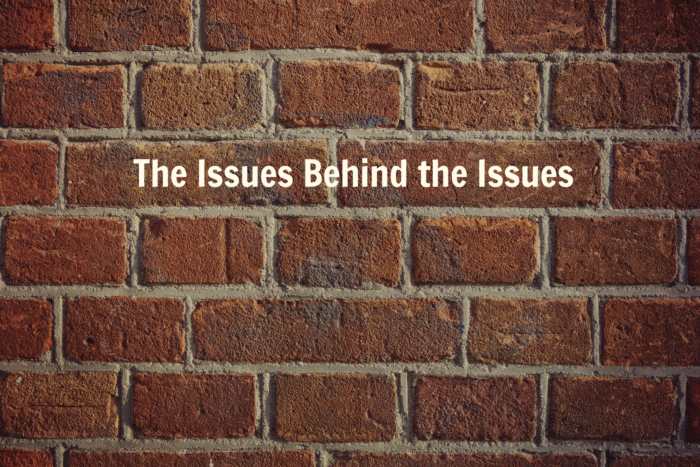What Are You Willing to Give Up for Jesus?
I was having a conversation with an elementary-aged girl about unicorns a few weeks back. As you are probably already aware, they are currently all the rage. You find unicorns everywhere. They are the theme of birthday parties, plastered on lunch boxes, school supplies, girls’ clothing, and almost everywhere else. I have even seen them on baby clothing at Carter’s.
This little girl was telling me how much she loved unicorns. And then she stopped and looked at me: “Wait. Are unicorns bad?”
I do not know why she even asked me that question. I had not said even a word as she went on and on about how much she loved them. And the conversation took place while I was giving her a ride home in the evening so she couldn’t see my face. But she asked it. She asked me if they are bad.
And I had to answer honestly. I had no interest in bursting her bubble, but, yes, unicorns are bad. These mystical creatures are a symbol of feminism, magic/occult, and the LGBT movement, among other things. (Just do a search and see what shows up. It’s a bit disturbing). But I realize that most people don’t know this so I am not making any judgment on you if there are unicorns in the life of the little girls you love. This post isn’t about unicorns but about this little girl’s response…
I tried to kindly explain that unicorns might not be the best thing to love. But she cut me off and announced matter-of-factly that she didn’t care if they were bad because she loved them far too much. Nothing would make her give them up.
And I had to laugh inside. Not that it was all that funny. But how often are we just like that little girl? How often do we respond exactly like her? We are not willing to give up what we love even if God clearly directs us from His Word that we should do so.
Whether it’s unicorns or it’s–
• A TV show, book series, or music genre that we just love but recognize, deep-down inside, that it shouldn’t be a part of our lives.
• An unbiblical church that isn’t preaching truth…but all of our friends are there.
• Bad habits of eating too much, spending too much, drinking too much, knowing full-well we are not pleasing our heavenly Father.
• An unsaved boyfriend or girlfriend that, in our flesh, we want to date.
• Some secret sin that no one knows about or a secret place we go or a secret vice we cling to.
• A grudge or unforgiving heart towards someone that we love to nurse.
• Our penchant for gossip, or “white” lies (a lie is a lie, btw), or cheating our bosses or perhaps even the government (on our taxes).
• Allowing worry and anxiety to consume us and control our lives.
And we respond like the little girl:
I don’t care if it’s wrong, I am going to do this anyway.
Can you see how a seed of rebellion shows it first green leaves at this declaration? Oh, we may not say it out loud or even in our thoughts, but we know. We know when we are holding on to something sinful with an unwillingness to budge.
And this is when a wall starts to grow between us and the Lord.
Jesus says that if we love Him, we will keep His commandments (John 14:15). James tells us we must submit to God so that the devil will flee from us (James 4:7). Peter tells us to turn away from our former lusts and to be holy (I Peter 1:14-16). Paul tells us this same thing in Ephesians (Ephesians 4:22-24).
When we refuse to put away worldly, ungodly things that we know full well are sinful we are quite effectively blocking our own growth as a believer. Rebellion is what caused Satan to be removed from heaven (Isaiah 14:12-15) and it’s what led Eve to eat that apple (Genesis 3). She wasn’t going to let God tell her what was good and evil. She could decide for herself.
How often do we have this same attitude? God, I’ll obey you in this, this, and this but I am not going to give you that. I can make up my own mind about that and I don’t need to submit to you.
But these little decisions and behaviors do not go unnoticed by the God who loves us. I wonder if He grieves at our selfish, spoiled child mentality of wanting what we want and refusing to give it up?
We know that sinful choices always lead us away from Him. And as they lead us away from Him, they are moving us towards heartache, chains, and despair. Affairs, addictions, and broken relationships all begin with a seemingly insignificant decision of rebellion. But, even if it’s not going to lead us into something like that, we know that every sinful choice takes us just a step further away from pure fellowship with God. Rebellion always does this.
I am not here to give you a list of what you can and cannot do, where you can and cannot go, what you can and cannot watch or listen to. But, instead, I simply want to encourage you, as a believer, to follow your conscience. Listen to that niggling doubt that is in the back of your head. Ask the Lord to open your eyes to your sin and to any choices that are leading you away from Him. Be willing to surrender your own will and desires to the God who loves you.
I write this to myself, as well. Maybe mostly to myself. I found this to be oh, so challenging. A supposedly insignificant conversation with a little girl about unicorns filled me with conviction over how I can be so rebellious in the “little” sinful things I refuse to give up.
Maybe that little conversation will convict you, too, which is why I decided to share it.
Just what are we willing to give up for Jesus? What are we willing to give up so that we can have the best possible relationship with Him? Is any sin or selfish choice worth a break in our fellowship with our precious Lord and Savior?










